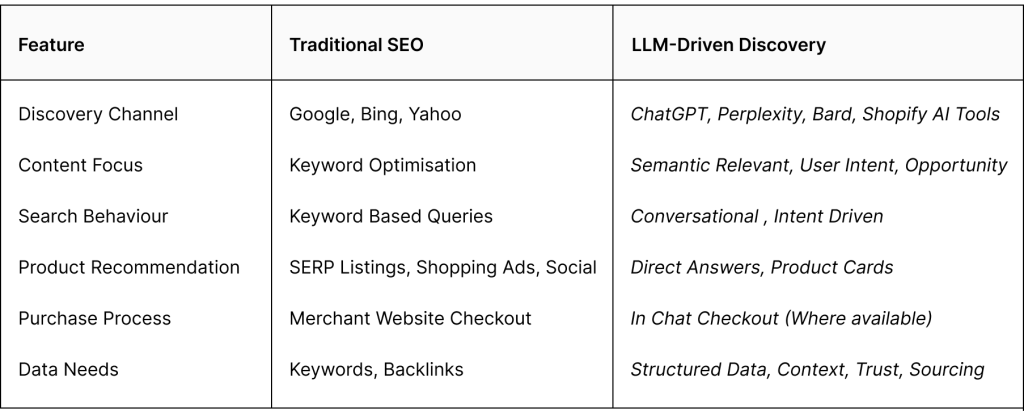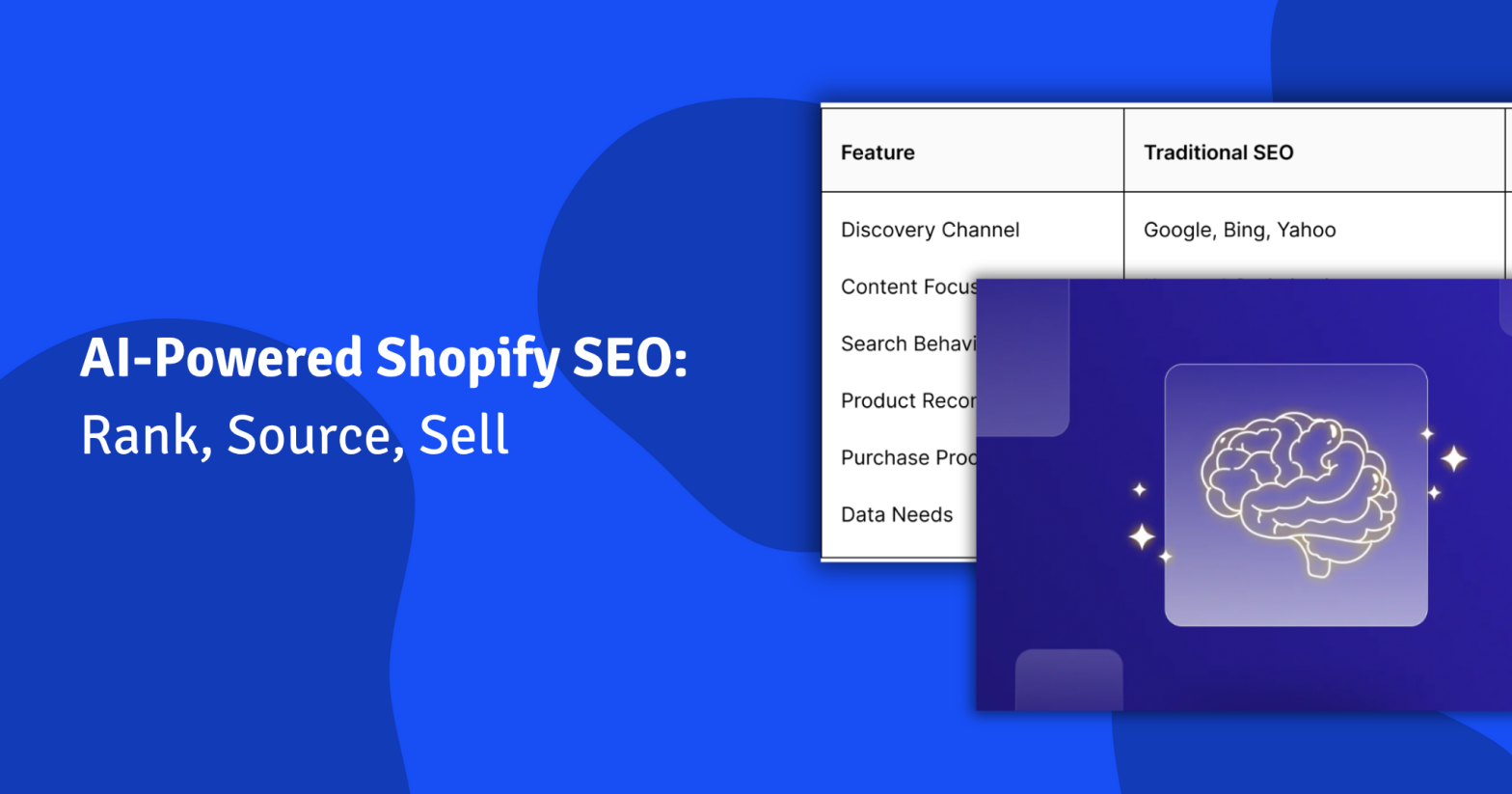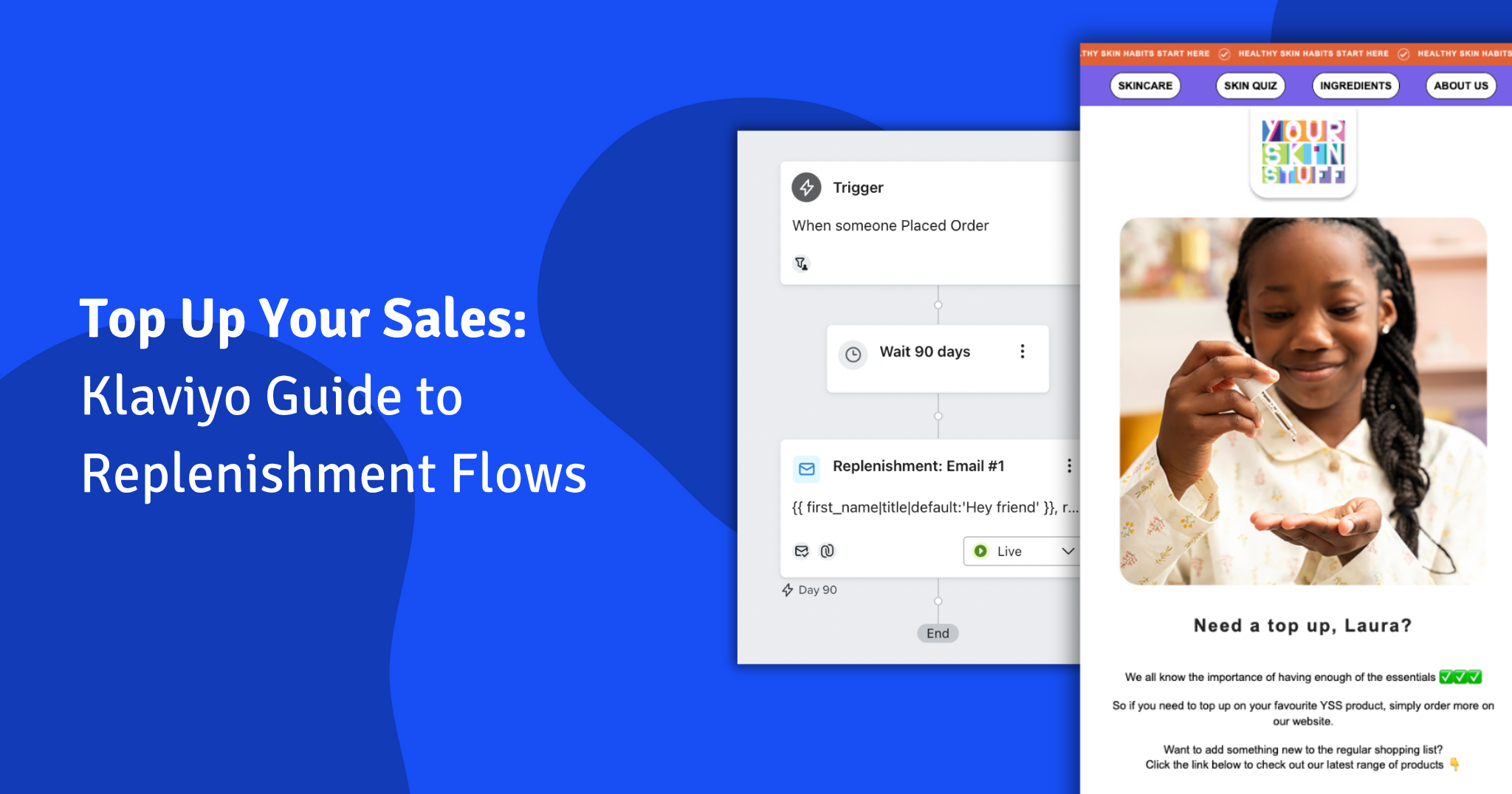The way people shop online is changing fast. Google’s still a big deal, but now AI tools like ChatGPT and Perplexity are where folks are turning to find and decide on products. As Shopify Plus partners, Glaze Digital helps businesses keep up with this shift – because relying on just traditional SEO isn’t enough anymore to get noticed in today’s AI-driven world.
Here’s an example using our client BLK BOX Fitness:
Picture this: a gym manager in London needs top-quality gym flooring. Instead of Googling, they ask ChatGPT, “What’s the best gym flooring for luxury gyms?” In seconds, they get a detailed answer pointing them to BLK BOX Fitness, complete with links to case studies and product details.
The Changing Face of Product Discovery

Why LLMs Care About Structure, Not Just Keywords
LLMs don’t simply scan for keywords or use robots like Google does; they interpret meaning, context, and intent. This means your Shopify store must be structured so AI can understand, trust, and recommend your products. For Shopify store owners, this means rethinking traditional SEO approaches and implementing specific strategies that cater to how AI systems process and understand information:
Here’s what LLMs prioritise:
- Semantic Relevance: Content must answer real user questions and reflect actual buyer intent. LLMs look for the meaning behind words and phrases, understanding context and intent rather than just matching exact terms
- Summaries and TL;DRs: Adding a brief summary at the top or bottom of a page helps LLMs identify the main ideas quickly
- Structured Data: Schema markup (Product, Review, FAQ, Article) is essential for machine understanding.
- Interconnected Content: Internal links between products, collections, and blogs help LLMs build a knowledge graph of your brand.
- Fresh, Accurate Data: Real-time inventory and pricing updates signal trustworthiness to AI models.
- Natural Language Processing: Using clear, conversational product descriptions that match how customers actually speak about products.
- Rich Media Context: Properly labeled images and videos with descriptive alt text and captions that LLMs can understand.
- User Experience Signals: Navigation structure and site architecture that demonstrates logical product relationships.
- Authority Indicators: Expert content, detailed specifications, and authenticated customer reviews that build trust.
- Content Hierarchy: Clear headings (H1, H2, H3) help LLMs grasp the relationships between topics and subtopics, making it easier to extract relevant information53.
- Lists and Bullet Points: These provide digestible, structured information that LLMs can quickly summarise or reference in answers
- Tables and Comparisons: organised tables (like feature comparisons or pricing charts) are easily parsed and can be directly cited in AI-generated answers.
- Short, Focused Paragraphs: Concise writing with clear topic sentences improves comprehension and increases the likelihood of being featured in AI summaries5.
How LLMs Deliver Sourced and Trustworthy Answers
LLMs don’t just make things up, they aggregate information from trusted sources, weigh credibility, and sometimes even provide references. This is called retrieval-augmented generation (RAG).
Let’s look to BLK BOX Fitness as an example again. If someone asks, “What makes BLK BOX Fitness gym flooring special?”, the AI might pull from BLK BOX’s product pages, customer reviews, and industry standards to craft a trustworthy answer.
That means that if your site has clear, well-structured content and up-to-date info, you’re more likely to be featured in AI-driven answers.
Automating Business Glossaries with LLMs
LLMs can analyse your website and automatically generate a glossary of key terms and definitions. For a brand like BLK BOX Fitness, this means terms like “shock absorption,” “modular design,” and “elite athlete” are defined and used consistently across your site.
Benefits:
- Consistency: Everyone uses the same terminology.
- Clarity: Reduces misunderstandings with customers and partners.
- Efficiency: Saves time compared to manual glossary creation.
Practical Tips for Optimising your Shopify Store
- Write for Intent, Not Just Keywords: Answer real customer questions. For example, don’t just say “high-quality gym flooring.” Explain why it’s safe, durable, and perfect for elite athletes and luxury gyms—just like you see on BLK BOX Fitness’s site.
- Implement Clear Headers and Navigation: Use a logical hierarchy of headings and intuitive navigation to help LLMs understand your site structure better.
- Create Comprehensive FAQs: Add detailed FAQ sections that address common customer queries in natural language, making it easier for LLMs to pull accurate answers.
- Optimize Image Metadata: Include descriptive alt text and captions for all product images to help LLMs understand visual content.
- Add Product Comparison Tables: Create clear, structured comparison tables to help LLMs easily understand and communicate product differences.
- Include Technical Specifications: Provide detailed, structured technical specifications that LLMs can easily reference when answering specific product queries.
- Use Schema Markup: Add structured data to your product pages. This helps LLMs understand your products, reviews, and FAQs, Delivery & Returns, Comparison Tables, Quotes, Reviews.
- Link Your Content : Connect products, case studies, and blogs. BLK BOX links their products to testimonials and client stories, building trust and context.
- Keep Data Fresh : Update prices and stock levels in real time. AI trusts stores that give accurate info.
- Allow AI Crawlers : Update your
robots.txtto let AI bots likeGPTBotandPerplexityBotaccess your site. - Monitor AI Traffic : Use UTM parameters to track visits from AI tools. This helps you understand what’s working.
AI and large language models are shaking up how customers find and shop online. By setting up your Shopify store with structured data, natural language content, and an AI-friendly design, you can put your business ahead of the curve in this new tech landscape.
Keen to learn more about AI-powered e-commerce? At Glaze Digital, we’re experts in making these changes happen – drop us a line on our website anytime.
Want to avoid missing expert Klaviyo advice and tips in future? Sign up to our newsletter – Shopify Insider – today to get content like this sent straight to your inbox.


